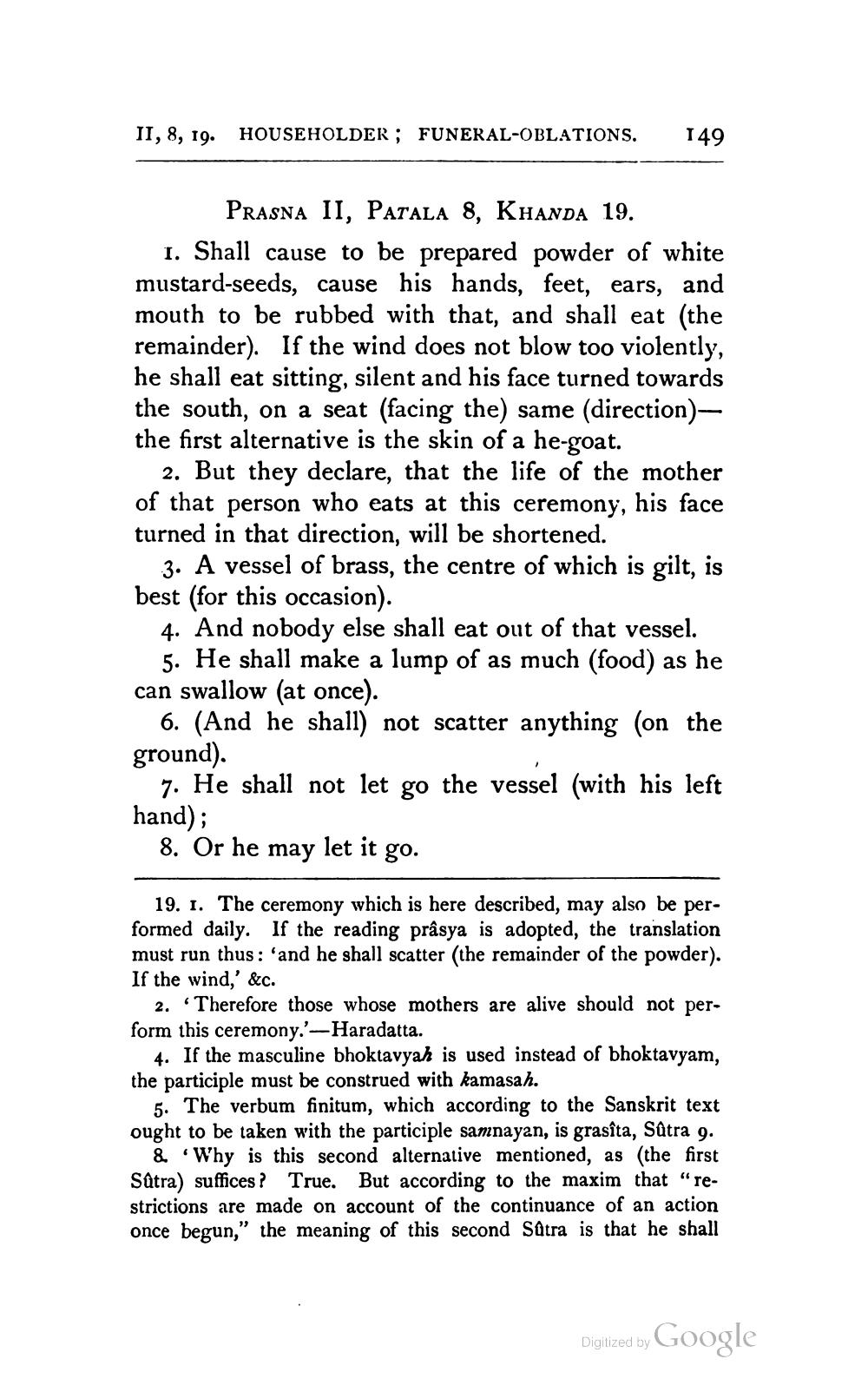________________
II, 8, 19. HOUSEHOLDER; FUNERAL-OBLATIONS.
149
Prasna II, PATALA 8, Khanda 19. 1. Shall cause to be prepared powder of white mustard-seeds, cause his hands, feet, ears, and mouth to be rubbed with that, and shall eat (the remainder). If the wind does not blow too violently, he shall eat sitting, silent and his face turned towards the south, on a seat (facing the) same (direction)the first alternative is the skin of a he-goat.
2. But they declare, that the life of the mother of that person who eats at this ceremony, his face turned in that direction, will be shortened.
3. A vessel of brass, the centre of which is gilt, is best (for this occasion).
4. And nobody else shall eat out of that vessel.
5. He shall make a lump of as much (food) as he can swallow (at once).
6. (And he shall) not scatter anything (on the ground).
7. He shall not let go the vessel (with his left hand);
8. Or he may let it go.
19. 1. The ceremony which is here described, may also be performed daily. If the reading prâsya is adopted, the translation must run thus : 'and he shall scatter (the remainder of the powder). If the wind,' &c.
2. “Therefore those whose mothers are alive should not perform this ceremony.'-Haradatta.
4. If the masculine bhoktavyah is used instead of bhoktavyam, the participle must be construed with kamasah.
5. The verbum finitum, which according to the Sanskrit text ought to be taken with the participle samnayan, is grasîta, Sūtra o.
& Why is this second alternative mentioned, as the first Satra) suffices ? True. But according to the maxim that "restrictions are made on account of the continuance of an action once begun," the meaning of this second Sätra is that he shall
Digitized by Google




